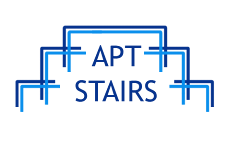Enhancing Disease Surveillance And Response In The Animal And Human Health Sectors Through The Application Of Mobile Technologies
Mobile technologies are now increasingly being used across Africa for everything from phone to SMS texting. This is associated with widespread access to affordable mobile networks and handsets. In many cases this technology has overtaken the use of landline phones, radio and internet for communication in rural communities. Innovative examples of the potential of these mobile devices including the ability to make small SMS payments, receiving text alerts of market prices or receiving medication reminders for TB treatment.
The recent development and access to second generation mobile devices offers significant new opportunities for disease surveillance and prevention. The handsets now have accurate geo spatial sensing which enables accurate tracking of location and linking to text, image and data. The potential to insert memory cards means that not only can the devices temporarily capture data off line where a network is poor. This additional memory means that the handsets can be populated with appropriate disease extensions and support material in video, audio and textual format which the operator can refer to in the field.
There are already Open Source tools available for the Android platform which can be relatively simply be engineered to enable disease data collection. Data entry can be using a pen device, a keypad or touch screen and GPS settings are captured automatically. This data can then be transmitted through a GPRS or low bandwidth network to a central server where it can be analyses, mapped and modelled almost immediately after the data has been collected. The field worker can then be referred to information on the handset memory in the local language for example with advice on suitable biosecurity measure to adopt.
This initiative therefore aims to explore the opportunities provided by these mobile technologies to enhance disease surveillance in the human and animal health sectors, reporting and feedback in Zambia, Tanzania and Kenya/Uganda. It will draw on the extensive experience of its partners working in the field in South-east Asia and Southern/Eastern Africa, university based research and development expertise and the insight and experience provided by Google and other technology providers.
The project has been generously funded by the Rockefeller Foundation through the Southern African Centre for Infectious Disease Surveillance (http://www.sacids.org/) with an initial Tanzanian planning workshop in January 2010.
Google Keep reminders will be saved to Tasks
1 year ago

No comments:
Post a Comment